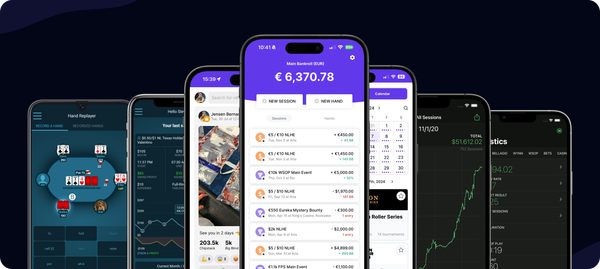Should You Sell Action? Pros & Cons of Staking in Live Poker

Selling action is a common strategy used by poker players to reduce variance, take shots at bigger games, and protect their bankroll. However, if done incorrectly, staking can lead to misunderstandings, financial losses, and even scams. To make staking work in your favor, you need clear agreements, transparent tracking, and trustworthy backers.
The Pros of Selling Action
1. Reduce Variance Without Risking Your Entire Bankroll
Live poker has significant swings, and even winning players experience long downswings. By selling action, you spread the financial risk across multiple investors, ensuring that a single tournament or session doesn't wipe out a huge portion of your bankroll.
2. Play Higher Buy-Ins Without Overextending
Many players lack the bankroll to play high-stakes tournaments. Selling action allows you to enter bigger events while staying within proper bankroll management guidelines. This gives you access to softer fields and higher EV spots without taking on excessive risk.
3. Build a Long-Term Network of Investors
A strong performance in staked events can attract repeat investors who are willing to back you for multiple tournaments. If you honor your deals, communicate transparently, and consistently show results, you can build long-term backing relationships that open doors to higher stakes.
The Cons of Selling Action
1. Reduced Profits When You Win
By selling action, you're giving up a portion of your potential earnings. If you go deep in a tournament or hit a massive score, you only keep the percentage of action you retained. While this trade-off is necessary for bankroll protection, it can be frustrating when you hit a life-changing score and owe a large percentage to investors.
2. The Risk of Misunderstandings
Many staking disputes arise because of unclear terms. Before selling action, always ensure that you and your backers agree on key details:
- Markup - Are you selling at face value or charging extra for your perceived edge?
- Makeup - If this is a long-term deal, do losses carry over?
- Payouts - When and how will backers receive their share of winnings?
If terms aren't clearly written and tracked, disputes can quickly arise.
3. Potential for Scams and Bad Deals
Both players and backers need protection from dishonest deals. Some players oversell action, while some backers refuse to pay winnings. Without a reliable system to track staking agreements and results, both parties are at risk of getting scammed.
How to Sell Action the Right Way
To avoid bankroll mistakes and staking disputes, follow these best practices:
- Use a reliable platform to track action sales, agreements, and payouts. This ensures that all parties have access to clear records of the deal.
- Only work with reputable backers who have a proven history of staking deals. If a backer is unknown in the poker community and unwilling to provide references, be cautious.
- Communicate openly with your investors. Keeping them updated on your progress, results, and cashouts builds trust and increases your chances of getting backed in the future.
- Avoid staking deals with unclear or confusing terms. If a deal doesn’t feel right, it’s better to pass than to risk a dispute later.
Final Thoughts
Staking is a powerful tool that can help poker players take their game to the next level, but it must be done correctly. By using social control, clear agreements, and proper tracking, you can protect yourself and your investors from unnecessary risk. The key to successful staking is transparency and trust - without it, both players and backers are exposed to potential losses.
Ready to treat your poker like a business?
We’re building Pokerbase for you - to help you track sessions, manage your bankroll like a pro, and stay accountable so you can become the most professional version of yourself.
📲 Start tracking smarter today: Download for iOS & Download for Android
🚀 Join us on Instagram for insights & behind-the-scenes updates: @pokerbase.app
😎 Follow us on the Pokerbase platform: @pokerbase
🔔 Your journey to becoming a better poker player starts now. Let’s build it together.




